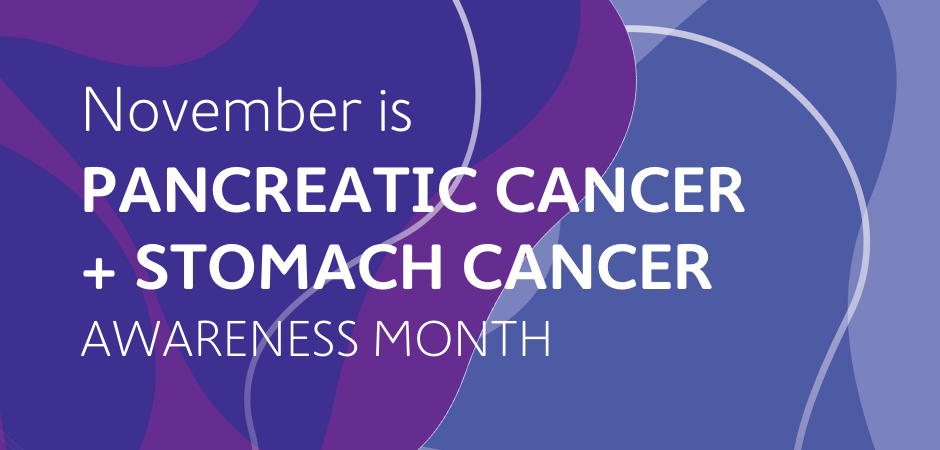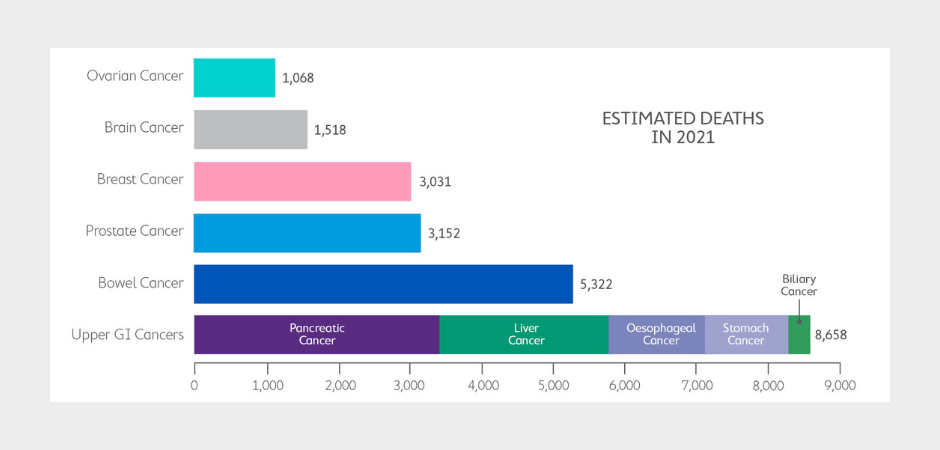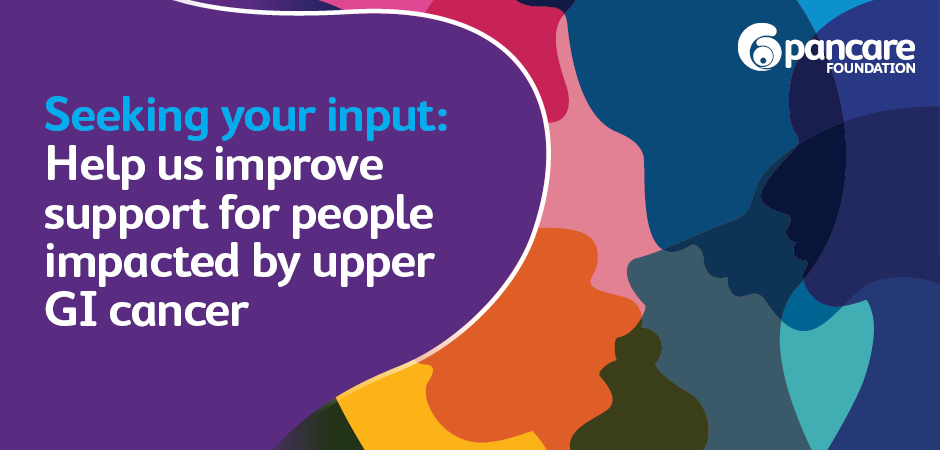
Pancreatic and Stomach Cancer Awareness Month
November is Pancreatic and Stomach Cancer Awareness Month. It is an important time for cancer awareness raising in Australia, with two of the nation’s low-survival cancers in the spotlight.
Both pancreatic and stomach cancer are upper gastrointestinal (GI) cancers.
Upper GI cancer is a term for the group of cancers that affect the upper digestive system. The upper digestive system includes the pancreas, liver, stomach, bile ducts and oesophagus.
Each of these organs plays a vital role in digesting food and fluid, processing nutrients, absorbing energy, regulating blood sugar and filtering waste before passing through to the lower gastrointestinal tract.
In 2020, there were approximately 150,000 new cases of cancer diagnosed and less than 50,000 deaths from cancer in Australia, with upper GI cancer making up 8% of diagnosed cancers. They are considered low-survival cancers, resulting in >17% of estimated deaths.
Why do these cancers need attention?
Despite collectively representing a leading cause of cancer deaths in society, upper GI cancers receive very little support or government funding. They have low awareness, in part because of the short life expectancy of patients after diagnosis. There are few survivor groups to advocate on behalf of those impacted by these diseases and no time for the development of patient advocates.
While Pancare Foundation is ultimately trying to cure patients through investment into life changing research, a lack of funding and awareness has meant that outcomes haven’t significantly improved for the past 40 years. Those affected by upper GI cancers are still confronted with a low chance of surviving past five years.

What do I need to know?
Upper GI cancers including stomach and pancreatic cancer, can be difficult to detect due to the location of the organs. They often go undiagnosed in the early stages due to the presentation of vague symptoms such as nausea, pain in the upper abdomen, loss of appetite, weight loss and tiredness. There are no early detection tests available.
Once these cancers reach advanced states, their spread to other nearby organs means that any chance of curative surgery is effectively eliminated, and chances of survival drastically reduced.
Symptoms are often vague and can be similar to other medical conditions.
It is important to be aware of the symptoms and risk factors of these cancers.
See your GP if you are experiencing unexplained symptoms that are persistent or unusual for you. Your doctor will ask questions to determine whether the cause of symptoms is an upper GI cancer or another condition.
- Learn more about the signs and symptoms of pancreatic cancer
- Learn more about the signs and symptoms of stomach cancer
How can I help?
Since 2011, Pancare Foundation has been dedicated to improving outcomes for people whose lives have been affected by upper gastrointestinal (GI) cancer, including pancreatic cancer and stomach cancer.
We provide support services to patients and carers through our PanSupport program; we invest in vital research into early detection and better treatment outcomes; we raise funds to help educate people about the symptoms and signs of these cancers.
We could not do any of this without our wonderful community partners who volunteer their time and resources to help fundraise to support our important work.
Learn more about the ways that you can Get Involved and help Pancare Foundation provide more than hope to Australians impacted by pancreatic, stomach, liver, biliary and oesophageal cancer.
We’re here to help
If you, or a loved one, has been diagnosed with an upper gastrointestinal cancer, Pancare Foundation offer dedicated support, resources and specialist information for patients, carers and their families. Please get in touch.
Read more . . .






